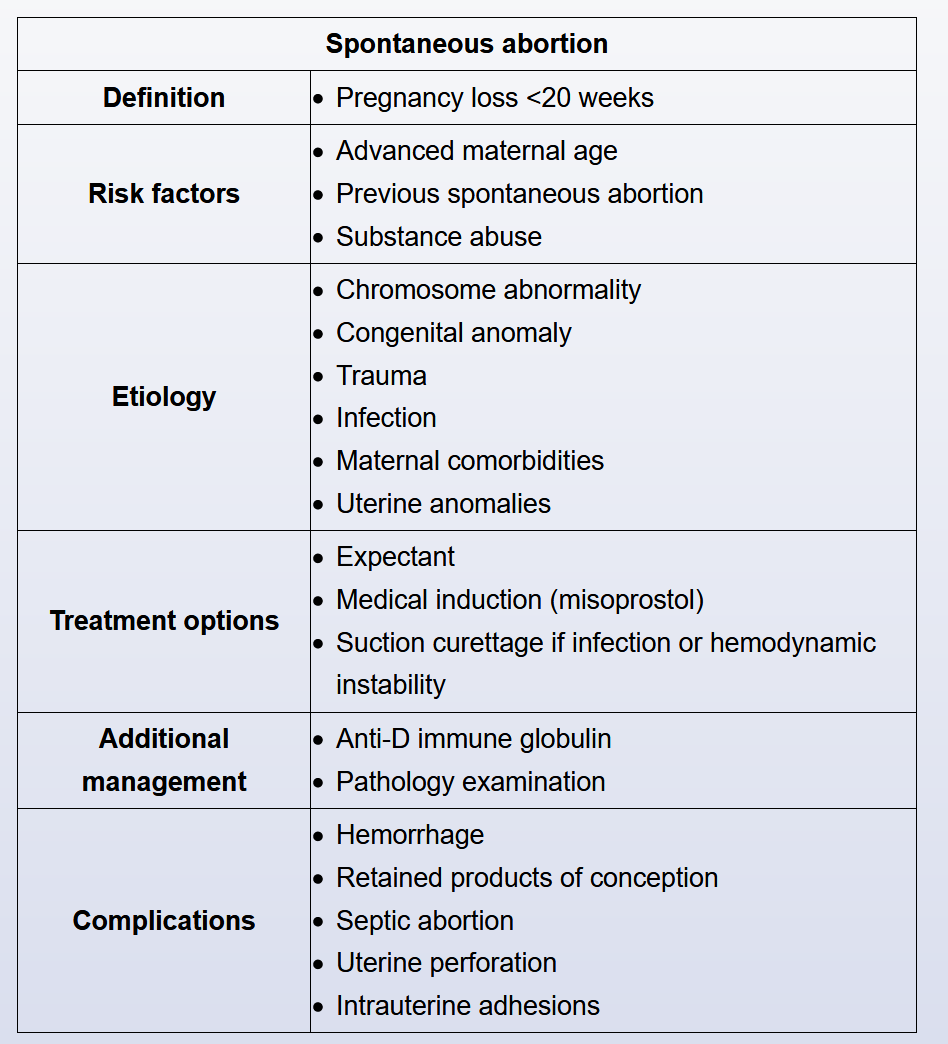spontaneous abortions
- related: OBGYN

Spontaneous abortion (miscarriage) is a pregnancy loss at <20 weeks gestation. Spontaneous abortion occurs in as many as 20% of pregnancies, making it the most common complication of early pregnancy. Risk factors for spontaneous abortion include advanced maternal age (eg, >35), a history of a prior spontaneous abortion, and substance use. The risk that a pregnancy will be complicated by a spontaneous abortion decreases as gestational age increases; the risk after 15 weeks gestation is <1%.
The most common etiology of spontaneous abortion is a fetal chromosomal abnormality, particularly autosomal trisomy (eg, trisomy 16). The majority of these abnormalities are the result of spontaneous errors during meiosis, not inherited conditions (eg, Robertsonian translocation). Other common causes of spontaneous abortion include congenital anomalies (eg, teratogens), maternal trauma, structural uterine anomalies (eg, uterine leiomyoma, uterine septum), maternal disease (eg, diabetes mellitus), and first-trimester infection (eg, toxoplasmosis, listeriosis).
Oral contraceptives are not teratogenic and use during pregnancy is not associated with spontaneous abortion.